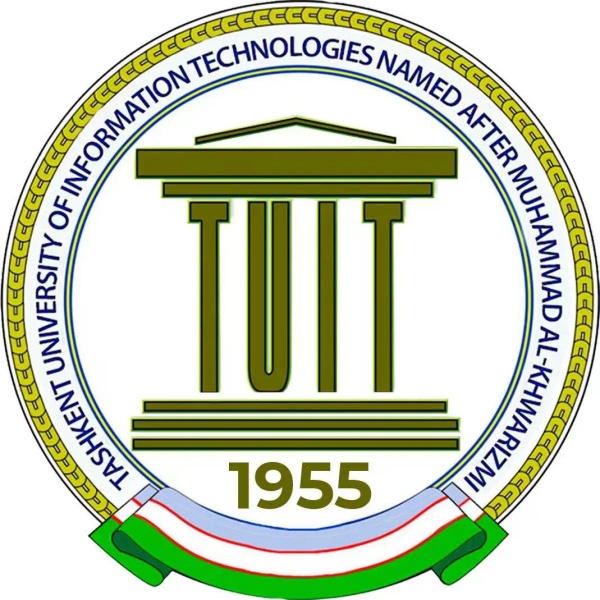
- Home
- Media Center
-
Events
- Wuzhen Summit
- Regional Forums
- Practice Cases of Jointly Building a Community with a Shared Future in Cyberspace
- World Internet Conference Awards for Pioneering Science and Technology
- The Light of Internet Expo
- Straight to Wuzhen Competition
- Global Youth Leadership Program
- WIC Distinguished Contribution Award
- Membership
- Research & Cooperation
- Digital Academy
-
Reports
- Collection of cases on Jointly Building a Community with a Shared Future in Cyberspace
- Collection of Shortlisted Achievements of World Internet Conference Awards for Pioneering Science and Technology
- Reports on Artificial Intelligence
- Reports on Cross—Border E—Commerce
- Reports on Data
- Outcomes of Think Tank Cooperation Program
- Series on Sovereignty in Cyberspace Theory and Practice
- Other Achievements
- About WIC
- 中文 | EN

New members | New beginnings, thriving futures
The seventh session of the first council of the World Internet Conference (WIC) approved the list of new members. The new members come from a diverse array of backgrounds. Driven by education, scientific breakthroughs, and global cooperation, they contribute to creating a more inclusive tech ecosystem, empowering sustainable development, and outlining a new paradigm of collaboration in digital era.
Let's take a closer look at these new members:
The Chinese University of Hong Kong

Founded in 1963, the Chinese University of Hong Kong (CUHK) is a top university in China's Hong Kong and Asia at large with a mission to combine tradition with modernity, and to bring together China and the West. With teachers and students hailing from around the world, CUHK aims to nurture students with both specialized knowledge and wisdom for life. Its eight faculties and nine colleges offer a wide array of undergraduate and postgraduate programs. The education experience here is distinguished by a flexible credit unit system, a college system, bilingualism and multiculturalism. There are also general education courses to develop students' ability to face the challenges of contemporary society. CUHK undertakes a wide range of research programs in many subject areas, and produces research of international quality. The University also has an excellent record of published research, both in discipline-specific journals and in more high-profile publications such as Science, Nature, and The Lancet. CUHK is a member of the Association of Pacific Rim Universities and the Worldwide Universities Network. It is also the first institution in Asia to achieve accreditation from the Association to Advance Collegiate Schools of Business and is home to the Hong Kong Internet Exchange.
The Hong Kong University of Science and Technology

The Hong Kong University of Science of Technology (HKUST) was founded in 1991. As Hong Kong's first research-intensive university, it offers programs through its School of Science, School of Engineering, School of Business and Management, School of Humanities and Social Science, and the Interdisciplinary Programs Office. Specializing in science, engineering, business, humanities, social sciences, and interdisciplinary fields, HKUST has a diverse student body from over 80 countries and regions. By 2025, HKUST is ranked 47th in the QS World University Rankings. It ranked No 1 in China under the patent influence metric of the Nature Index in 2022, and No 2 in China for deep tech unicorn incubation capability by New Fortune in the same year.
Beijing Normal University

Beijing Normal University (BNU) grew out of the Education Department of Imperial University of Peking established in 1902. BNU is a comprehensive and research-intensive university known for basic disciplines in sciences and humanities, teacher education and educational science. It is a major hub for nurturing high-quality innovative talent and plays an important role in China's humanities, social sciences, and technological advancements. Currently, BNU is steadily advancing toward its goal of becoming a world-class university, adhering to the educational philosophy of "cultivating both academic excellence and personal integrity, benefiting the world," and follows its motto "learn, so as to instruct others, act, to serve as example to all". With a focus on high-quality development, the university aims to contribute to building China into a leading country in education and providing comprehensive support for the realization of Chinese modernization through the high-quality development of education.
Europe China Joint Innovation Center

The Europe China Joint Innovation Center (EUCJIC) was established in Brussels, Belgium, in 2017. Its team is composed of entrepreneurs, former civil servants, innovators and investors from Europe and China. It focuses on synchronizing technological advancements, joint innovation, and collaborative entrepreneurship between Europe and China. By leveraging various resources, including government, industry, academia, and research, EUCJIC integrates international innovation resource channels and builds a multifunctional platform that serves as a hub for innovation resources, a channel for exchange and cooperation, a financial support system, and an entrepreneurial incubation and acceleration platform. Its aim is to provide fair, trustworthy, and efficient international services for innovation and entrepreneurial enterprises, industrial parks, organizations, and individuals from both Europe and China.
Tashkent University of Information Technologies

Founded in 1955, Tashkent University of Information Technologies (TUIT) is the largest telecommunications and information technology university in Uzbekistan, ranking among the top three universities in the country. Its goal is to advance science and technology for the benefit of society. The university has six regional branches and a total student population of over 30,000, with 14,000 students at the main campus in Tashkent. It employs nearly 1,000 faculty and staff members and has established cooperative relationships with 175 universities and research centers across 50 countries worldwide. As a member of the University Alliance of the Silk Road, the university has demonstrated outstanding performance in the field of information and communication technology talent development in Central Asia and globally.
Centro Nacional de Inteligencia Artificial

Centro Nacional de Inteligencia Artificial, established in 2021, aims to create a national ecosystem for artificial intelligence (AI) research, development, and dissemination, with the ultimate goal of improving the quality of life in Chile. As a leading institution in the field of AI, the center is dedicated to placing human welfare at the core of technological innovation and striving to become a leading organization in Latin America in the scientific and technological development in AI, achieving worldwide recognition. The center plays a key role in educating and training highly skilled professionals, integrating Chile's significant scientific productivity in AI, fostering a robust academic network across the region, and promoting the ethical and fair use of AI.
University of The Gambia

The University of The Gambia, established in 1999, is the only public university in the Gambia and serves as the country's core institution of higher education. It is dedicated to providing high-quality education and research opportunities across multiple disciplines, including natural sciences, social sciences, education, medicine, and engineering. The university aims to cultivate professionals with international perspectives and innovative capabilities, actively promoting academic exchanges and collaborations. The University of The Gambia holds an important position in African higher education and is a member of several international academic organizations. It has established partnerships with universities and research institutions across Africa and other regions, striving to enhance the sustainable development capacity of the country and the region through education and research.

The World Internet Conference (WIC) was established as an international organization on July 12, 2022, headquartered in Beijing, China. It was jointly initiated by Global System for Mobile Communication Association (GSMA), National Computer Network Emergency Response Technical Team/Coordination Center of China (CNCERT), China Internet Network Information Center (CNNIC), Alibaba Group, Tencent, and Zhijiang Lab.





